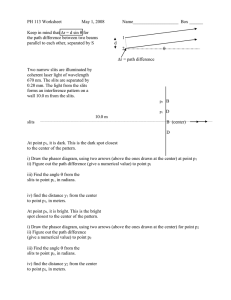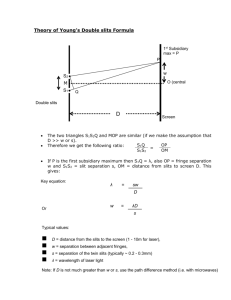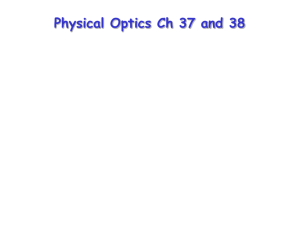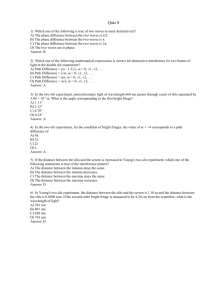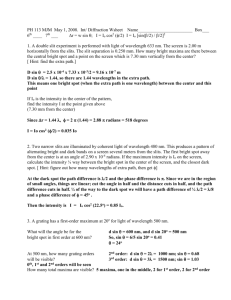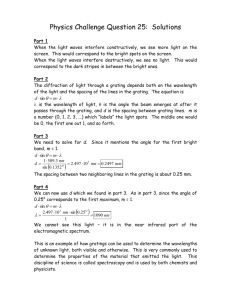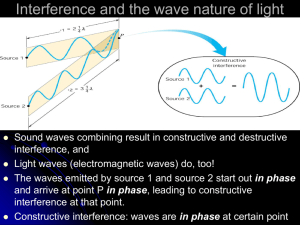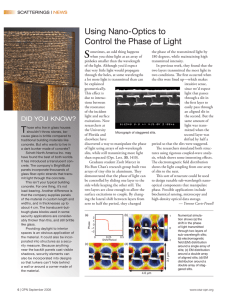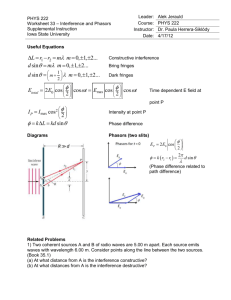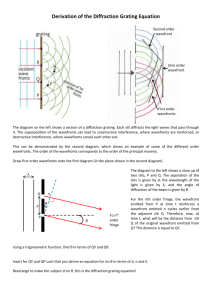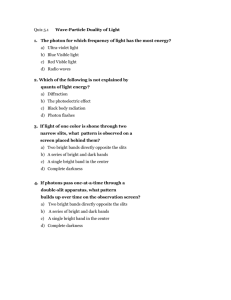PH 113 Worksheet - Rose
advertisement
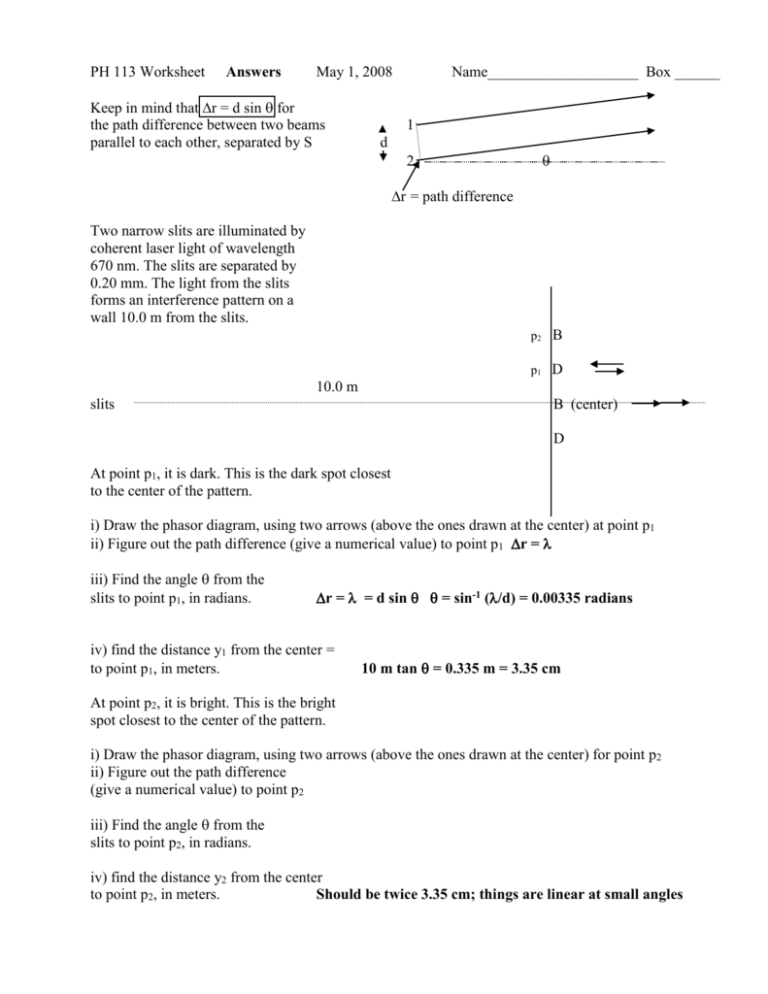
PH 113 Worksheet Answers May 1, 2008 Keep in mind that r = d sin for the path difference between two beams parallel to each other, separated by S Name____________________ Box ______ 1 d 2 r = path difference Two narrow slits are illuminated by coherent laser light of wavelength 670 nm. The slits are separated by 0.20 mm. The light from the slits forms an interference pattern on a wall 10.0 m from the slits. p2 B p1 D 10.0 m slits B (center) D At point p1, it is dark. This is the dark spot closest to the center of the pattern. i) Draw the phasor diagram, using two arrows (above the ones drawn at the center) at point p1 ii) Figure out the path difference (give a numerical value) to point p1 r = iii) Find the angle from the slits to point p1, in radians. r = = d sin = sin-1 (/d) = 0.00335 radians iv) find the distance y1 from the center = to point p1, in meters. 10 m tan = 0.335 m = 3.35 cm At point p2, it is bright. This is the bright spot closest to the center of the pattern. i) Draw the phasor diagram, using two arrows (above the ones drawn at the center) for point p2 ii) Figure out the path difference (give a numerical value) to point p2 iii) Find the angle from the slits to point p2, in radians. iv) find the distance y2 from the center to point p2, in meters. Should be twice 3.35 cm; things are linear at small angles Now we have a grating of N slits (maybe N = 100) with laser light of wavelength 670 nm passing through it. The spacing between adjacent slits is 2.0 x 10-6 m. At = 0, the path difference is zero and all N waves add up: There will be another when the waves also add up. What will the phase difference be between waves from adjacent slits when they all add up? What will the path difference be then (in meters) for waves from adjacent slits? Using r = d sin , calculate the angle for the first bright spot near the center. (This is the 'first-order maximum') d sin = ; sin = 670E-9/2.0 E-6 = 0.335 = 19.6o Calculate for the second and third (if there is one) order max's. 1st order sin = .335 2nd order sin = .335 x 2 => = 42.1o 3rd order sin = .335 x 3 => can’t see 3rd order. If the grating is 5.5 m from the screen, calculate the distance between the bright spot in the middle and the the first order maximum bright spot. Y = 5.5 m tan 19.6o = 1.96 m (Hard!) Find the angle between the first bright spot in the middle and the dark spot closest to it. dsin = + /N = 670 nm (1 +1/100) = 676.7 nm = 19.78o
